Farm manager Carole Appleton has successfully combined her genuine passion for animal welfare with her knowledge of animal husbandry and farming, to run a 108 hectare grazing block in Te Poi.
Carole was raised on a dairy farm in Eureka, and her father also bred, owned and trained racehorses.
“As a child I had the best of both worlds, farming and horses,” says Carole.
She’s worked in agriculture-related industries all her life. The opportunity to become farm manager at Brookside Farm in Te Poi came in 2012 when the dairy farm was bought by her family, with the plan to use it as a heifer grazing unit.
“We took over the farm on June 1, 2013,” says Carole. “But I had to advertise for farmers wanting the service before that. I showed people over the land asking them to imagine how it would be.” Now she has a waiting list for her services.
The changes started with earthmoving and tree felling to improve visibility on the accessways. The races were tidied up and new ones made to give easy access to all areas of the farm. Steeper areas unsuitable for grazing were fenced off and planted with thousands of native trees.
The paddocks were re-fenced into manageable sizes with a view to the rotational grazing system needed. The quality of the grass is very good and Carole has a regimented fertiliser plan, combined with regular weed control and spraying.
The water system was upgraded and troughs moved so every paddock had better access for stock.
“Our water in-take is from the bush, around 3km away across two other farms,” says Carole. “We have shared water rights with other farms and we have keep the in-take clear and maintain the pipes that lead to our property.”
Weight gain
As the land is ex-dairy, there was already an effective effluent system in place. Carole has converted the large feed pad into a complex yard system to suit her purposes. The fences and gates have been fixed to the concrete using DynaBolts to make a layout perfect for receiving stock, weighing, drenching and draughting.
Every year on May 1 the farm receives an intake of about 400 rising one-year-old heifers, usually made up of several mobs from different farms. In December, Carole takes on another 150 weaned calves. All stock are weighed, counted and checked for health issues as they are unloaded from the truck.
“My job isn’t just to graze the animals,” says Carole. “It’s to grow them too. The stock are continually developing and are fed with a diet of grass and silage supplemented as required. I expect a weight gain of half to 1kg per day per animal.”
On October 1 each year, the yearling bulls come to run with the older heifers for three or so months. Last season the empty rate on the farm was two-four per cent over the entire mobs, a clear indication of the high level of care for the mobs.
Carole can pick out the troublemaker bulls early on and keeps a close eye on them. A ‘dirty eye’ is a farming term for a look in a bull’s eye that indicates they may be a handful.
“I’m old school,” says Carole. “My father has taught me a great deal over the years about just looking at stock and understanding their body language.”
Carole is “very big on animal welfare”. Her philosophy is to nurture the stock, and act quickly if one looks sick, feed them well, and ensure they are handled regularly by humans.
No stress
“We never stress the stock,” says Carole. “They are regularly brought into the yards for weighing and drenching and the atmosphere is calm. We walk around them, touch them and talk to them. Part of my job is to get them used to being handled.”
It is important that when stock return to their farms to join the milking herd they are quiet and manageable.
“If a cow is happy, it will have less health issues, gain weight well and be calm,” says Carole. “They can’t speak for themselves, so we have to look after their welfare.”
Carole’s clients can expect an open gate policy, regular reports of weight gain and any health issues, progress photos, and a Christmas card usually with one of their heifers wearing a Santa hat.
“These animals are the farmer’s livelihood, the future generation of their herd,” says Carole. “Trust is very important and I take that very seriously.”
During her ‘downtime’ Carole can often be found in the middle of a mob of gentle and inquisitive ‘girls’, gathered around her sniffing and vying for some attention. Her affection for them shining through as she interacts with them.


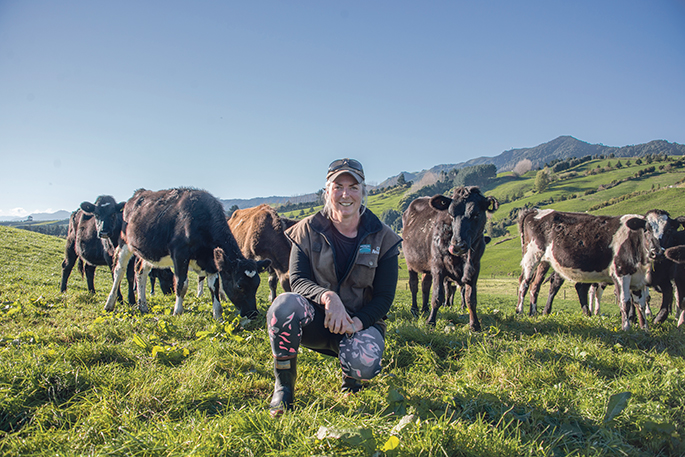
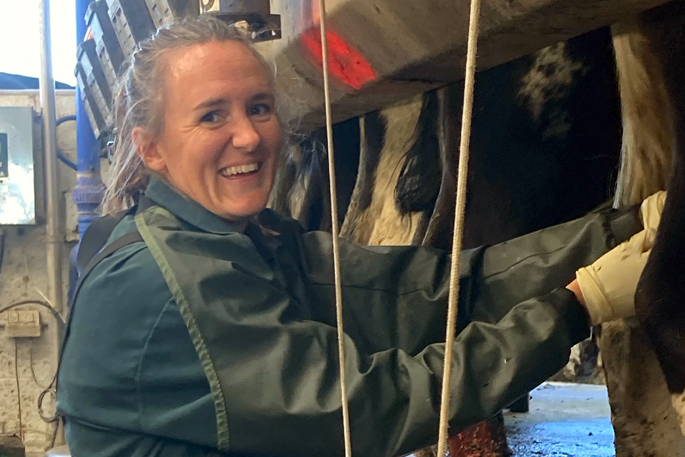
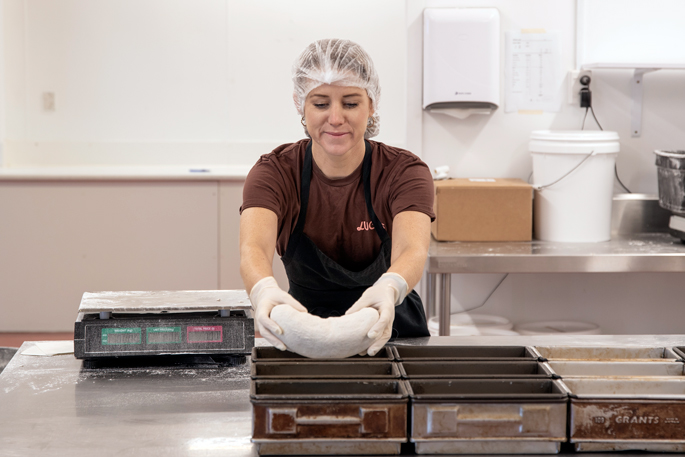
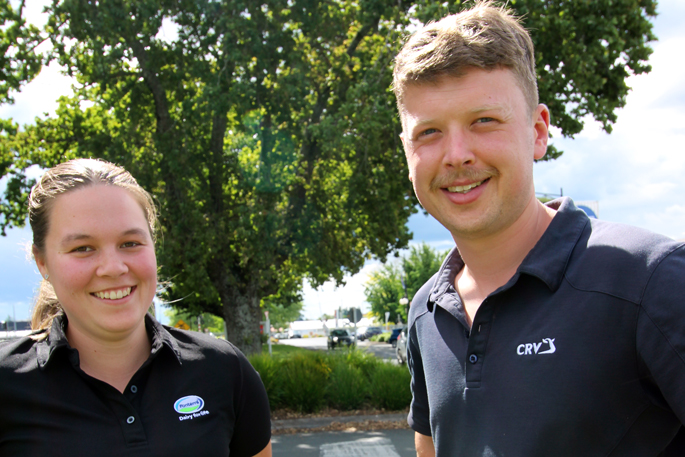
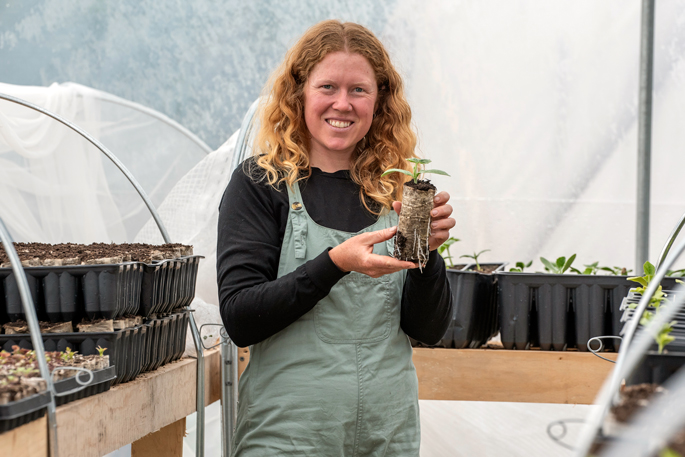
0 Comments
Leave a Comment